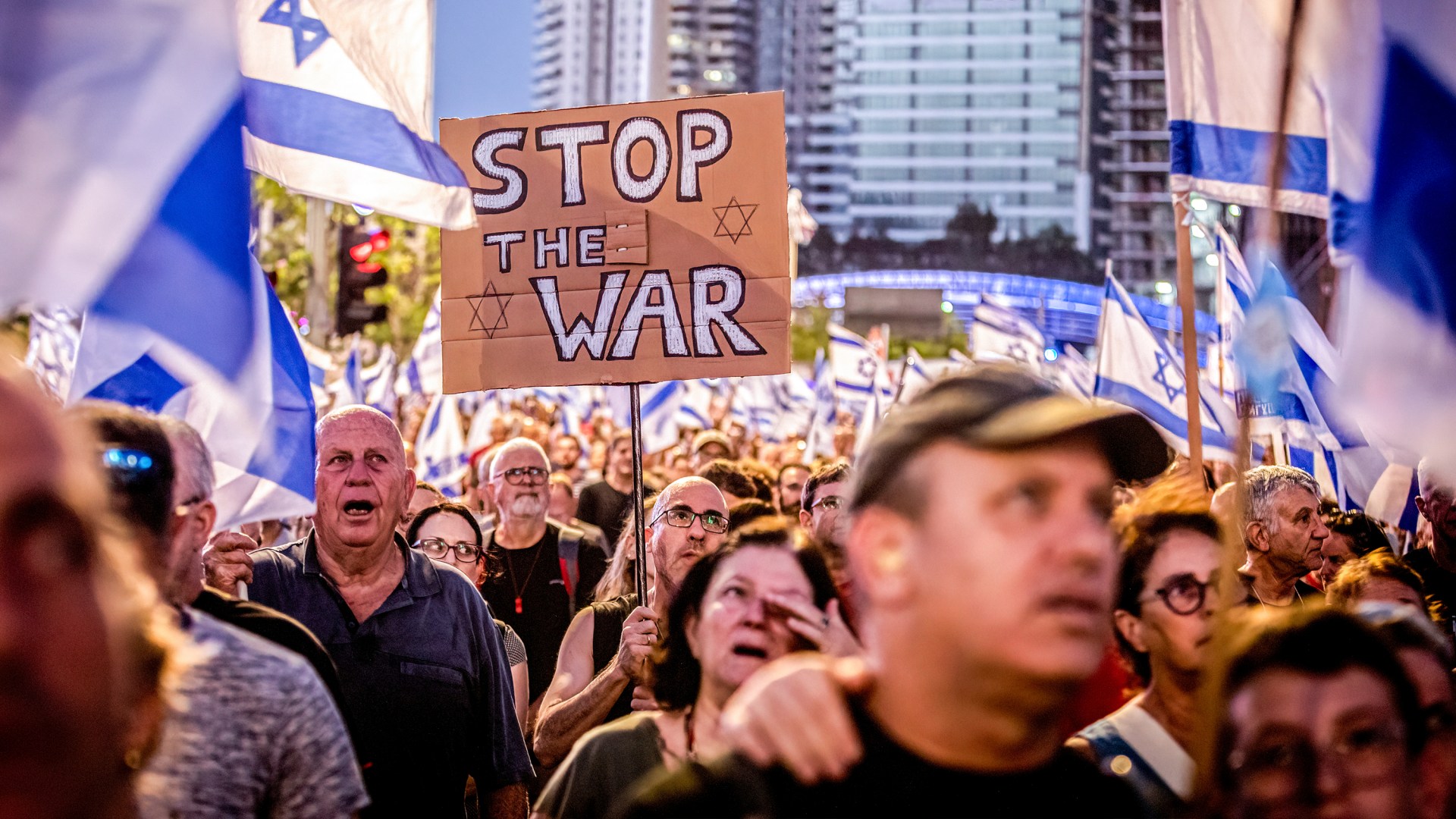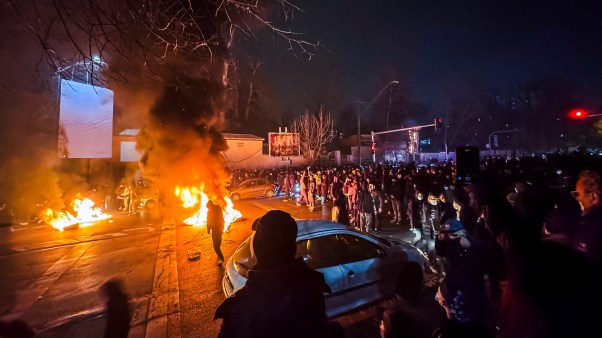After 15 months of war and failed negotiations, Israel and Hamas agreed Wednesday to pause fighting and to begin exchanging hostages imprisoned in Gaza for Palestinians in Israeli jails.
The deal brings hope for Palestinians facing food shortages and widespread death and destruction, but its terms are controversial for an Israeli public traumatized by the October 7, 2023, terrorist attack—and wary of security concessions. Israel’s cabinet still has to give the deal its blessing.
Phase one involves a six-week ceasefire and the exchange of 33 men, women, and children (or for those who perished, their bodies) for hundreds of Palestinian prisoners. Similar past exchanges freed hardened militants who turned around and committed acts of violence against Israelis.
For instance, in 2011, Hamas exchanged one kidnapped Israeli soldier for 1,000 Palestinian prisoners. One of those prisoners was Yahya Sinwar, the now-dead Hamas leader who engineered the October 7 cross-border attacks that left 1,200 dead and 250 people taken hostage.
“The basic principle is you don’t negotiate with terrorists who say, ‘We’re going to kill you anyways, and that’s the reason for our existence,’” said Israel Pochtar, an Israeli pastor at Congregation Beit Hallel, a church he founded 17 years ago in the city of Ashdod, 23 miles north of Gaza.
Dozens of members from his church left Ashdod to serve in the Israel Defense Forces (IDF) after October 7, even as the church grieved the loss of the youth leader’s son, a 20-year-old who had grown up in the church and was serving on the front lines when Hamas attacked. Congregation Beit Hallel currently has 30 men, some in leadership positions, serving in the reserves.
Pochtar can see Gaza from his 30th-floor apartment, an unnerving proximity for him in light of another requirement attached to the deal: Israeli troops will withdraw to a buffer zone less than a mile wide along Gaza’s eastern border. Though he and others are glad dozens of hostages are scheduled for release, they ask, At what cost?
IDF troops spent the past 15 months in Gaza clearing Hamas strongholds—many stationed under hospitals and mosques and throughout hundreds of miles of tunnels—and establishing security corridors to prevent weapons smuggling. Some analysts believe an Israeli troop withdrawal will be a green light for the remaining Hamas fighters to regroup and rearm.
Still, Pochtar empathized with the families of the hostages: “As a father of three, if my children were kidnapped in Gaza, I would just want my kids home.”
The initial phase of hostage releases will take place over several weeks and includes female soldiers, children, and civilians who are more than 50 years old. Two of the three American hostages may be part of the initial exchange.
A November 2023 ceasefire deal freed more than 100 hostages from captivity in Gaza. Israeli officials say there are 98 hostages, including four taken prior to October 2023, though analysts suspect one-third are dead.
Also part of the arrangement between Hamas and Israel: Gazans return to what homes they may still have, and the flow of aid increases. The tragedy for families in Gaza has been immense; according to the Hamas-run Gaza Health Ministry, more than 46,000 Palestinians have died since October 2023. (That estimate does not distinguish between civilians and Hamas combatants.)
The ceasefire is scheduled to begin on Sunday. If it holds, another round of talks addressing Gaza’s “day after” plan for governance will begin 16 days later. Negotiators from Qatar, Egypt, and the United States, including Trump’s Middle East envoy and members of the Biden administration, helped broker the agreement.
Both sides could face significant roadblocks in phase two. Israel wants assurances that Hamas will be eliminated as a political option and crippled as a terrorist enterprise. Hamas wants a pathway to survival.
One little-reported outcome: Pochtar knows Hamas members who have come to faith in Christ. He is praying for gospel intervention in the weeks ahead: “Anyone who comes to Jesus gains the power to forgive and the desire to bring the gospel to your enemies.”
Israel hasn’t officially approved the deal and has accused Hamas of backpedaling on some aspects of the agreement. But the delay could also be related to “coalition politics” among Israeli Prime Minister Benjamin Netanyahu’s Likud party, stated The Times of Israel. According to reports from Israel on Thursday evening, a small security cabinet will vote on the cease-fire on Friday, followed by a full cabinet vote on Saturday.
Since the ceasefire announcement, Israeli airstrikes have killed 83 people, including 23 children and 27 women, a spokesperson for Gaza’s civil defense said Thursday. The IDF told CNN they “conducted strikes on approximately 50 terror targets across the Gaza Strip.”
This is a developing story.













